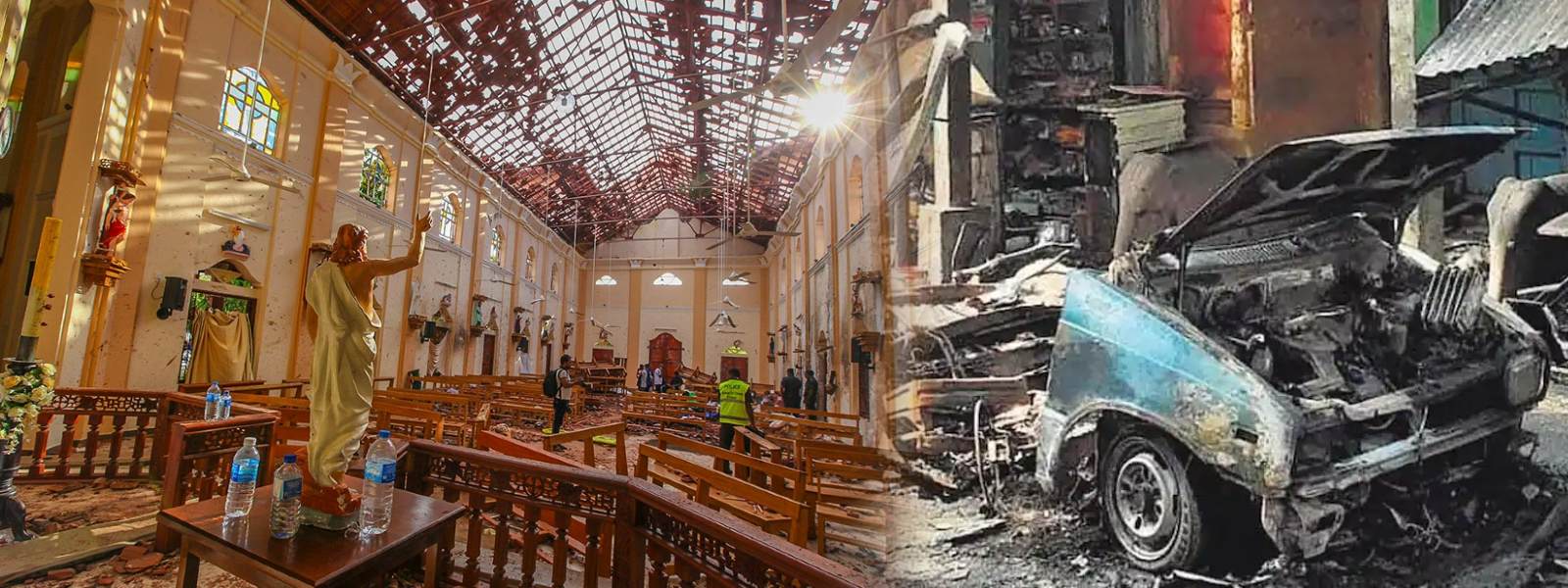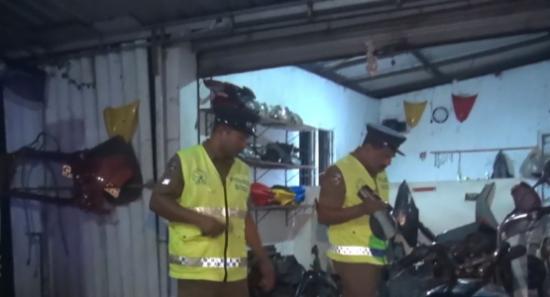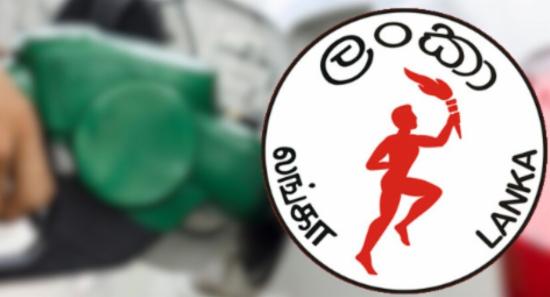.webp)

Indian Cops uncover links between Coimbatore bomber & Zahran Hashim
A 25-year-old man was killed in a gas cylinder blast in Tamil Nadu's Coimbatore on Sunday, October 23. The police identified the deceased as Jameesha Mubeen who was quizzed by NIA in 2019.
They also recovered low-intensive explosive materials from his house. Looking at the details emerging from the initial probe and the group of arrests made in the past, there are many details that we can map together to create a complete picture.
Initially reported as an “accident” by the local media, the incident took a fresh turn when DGP Sylendra Babu, visited the site and hinted at a terror plot. Mubeen is said to be from the highly sensitive Ukkadam area in Coimbatore.
The suspected mastermind of the Coimbatore blast hinted at his mission on social media account; NIA team reaches Coimbatore.
The Ministry of Home Affairs recently issued a specific alert on possible attacks on prominent Hindu organisation leaders by activists of the banned Popular Front of India (PFI) in Tamil Nadu, Kerala and Karnataka.
While the motive for the Sunday car explosion near a temple at Kottaimedu in Coimbatore is under investigation, sources in the intelligence agencies said Jameesha Mubin, a resident of Ukkadam who was killed in the blast suspected to have been triggered by an LPG cylinder, was on the watchlist of the police.
Updates on the investigations:
Reports emerging from the initial stages of the probe say that Mubeen was radicalized by the Islamic state philosophies and ideologies and was planning an Easter bombings-style operation (2019 blasts that rocked Srilanka) in Coimbatore and was planning to kick start the same from Konniyamman temple or Kotta Eswaran temple in Coimbatore.
Furthermore, reports also indicate that he was already on the watchlist of the Tamilnadu police as he had tried to set off an explosion a few years ago. Back then, owing to a lack of evidence, he was not subjected to arrest or detention. Mubeen is also set to have close links with Mohammed Azharuddin, now in a Kerala jail for his involvement with ISIS networks in the past.
Earlier, it was said that the incident was an accident involving the explosion of a gas-powered car. Sources now indicate that Mubeen was not driving a gas vehicle, but a petrol vehicle and the early triggering of the cylinder could have been an accident. Police say that on seeing a police check post, Mubeen tried to slow down his car, but the trigger went off prematurely before he could reach his target.
Mubeen was driving a Maruti 800 car which had 8-9 previous owners before him. The cylinder was stuffed with iron pellets and sharp metal items to cause more damage and injuries (a typical terror use case). Mubeen’s residential premises have been searched and many items like terror literature and explosives-related chemicals have apparently been found there.
Now, CCTV footage has emerged which reportedly shows the cylinders being loaded onto the car by four others whose identities are being looked into by the police investigating this case. There are also reports that the NIA may take over the investigations concerning the nature of the incident.
Who is Azharuddin?
In June 2019, Azharuddin was arrested as part of NIA’s (National Investigative Agency) continuation of investigations surrounding the Kasargod - ISIS breakthrough in Kerala. He was the prime accused and the leader of the module and had been maintaining a Facebook page named “KhilafahGFX”, through which he had been propagating the ideology of ISIS.
He was connected on Facebook with Lankan suicide bomber Zahran Hashim (mastermind of the Easter bombings in 2019) and other members of the module have also been sharing radical content attributed to Zahran Hashim, over social media.
This group was responsible for recruiting vulnerable young people into ISIS for carrying out terrorist attacks in South India, especially in Kerala and Tamil Nadu. Azharuddin also hailed from the Ukkadam area in Coimbatore. His groups also had documented links to Riyas Aboobacker alias Abu Dujana who was picked up by the NIA from Kerala in April 2019. Abu Dujana was a resident of Palakkad. He was allegedly planning suicide attacks in the state. He was a staunch follower of Zahran Hashim and the other infamous preacher, Zakir Naik.
During Azharuddin’s arrest, multiple phones, sim cards, terror and radical literature-related materials, an electric baton, guns, and other ammunition were recovered.
The connection to Zahran Hashim:
Zahran Hashim was from a small town called Kattankudy near Batticaloa on the eastern coast of Sri Lanka. He has been active on Facebook since 2011 and started radicalizing his followers through his posts and videos. He was seen as the Zakir Naik of this part of the world and he was the chief mastermind of the serial blasts in 2019 during which more than 250 people died in churches and other places in Srilanka. He was also one of the suicide bombers in these blasts.
Zahran Hashim was of Tamil Muslim ethnicity and hence had great influence among his followers in Southern India and even in parts of Malaysia and Singapore. Many groups in Tamilnadu used to follow his regular upload of videos and audio recordings. In July 2019, 2 Singaporeans were detained under the Internal Security Act (ISA) for intending to travel to Syria to join the Islamic State (IS). One of them was a money exchanger named Kuthubdeen Haja Najumudeen and a keen follower of Zahran Hashim. Since 2011, Haja had been listening to Zahran's online lectures and regularly contacted him for religious guidance. He also made three trips to Sri Lanka between May 2015 and October 2016 to visit the preacher and donated funds to Zahran his group, the National Thowheed Jamaath(NTJ).
It is important to note the influence of Zahran Hashim in Coimbatore and Ukkadam, especially. In October 2019, Arrests were made in Coimbatore by the NIA in connection with an IS module that was also influenced by Zahran Hashim. Their targets were Hindu groups and organizations present in Coimbatore. The group had conducted preparations, including reconnaissance of targets, for launching such attacks, which would have caused communal disharmony terror in the State. Further to this, searches and arrests were also carried out in Sivagangai, Tiruchirapalli, Nagapattinam and Thoothukudi districts back then. This Sunday’s incident looks to be of a similar nature.
(This report was prepared with input from Indian media reports)
Other Articles
Featured News





.png )







-783048_550x300.jpg)
-782664_550x300.jpg)

-782187_550x300.jpg)

















.gif)